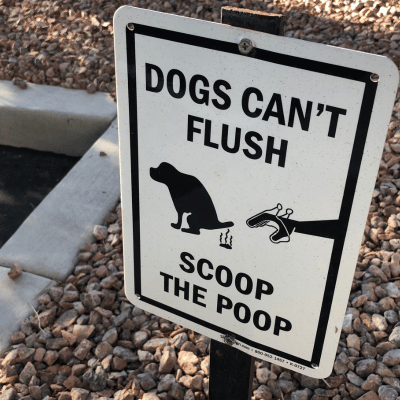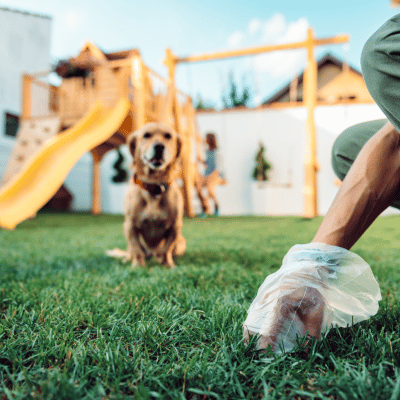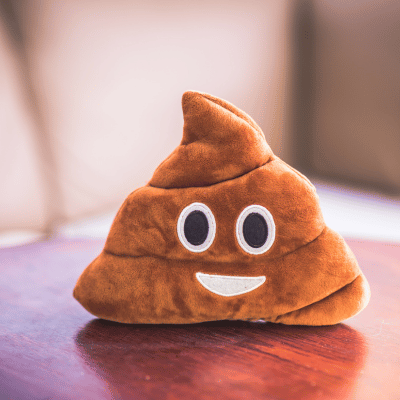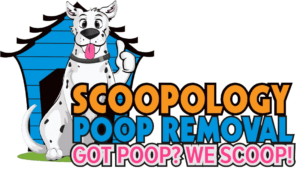 Why Dog Poop is a Serious Issue in Neighborhoods
Why Dog Poop is a Serious Issue in Neighborhoods
Dog waste in residential neighborhoods is more than just a minor inconvenience; it’s a serious issue that impacts the health, environment, and harmony of communities. Whether you’re a dog owner or simply a concerned resident, uncollected dog poop can create unsanitary conditions, spread diseases, and lead to community discord. For those in Washington, understanding the laws, health risks, and appropriate actions can help ensure a cleaner and more pleasant neighborhood. So, can you report your neighbor for not picking up their dog’s poop? The answer is yes, and here’s how you can do it.
Legal Obligations in Washington State
In Washington State, pet owners are legally required to pick up after their dogs. The failure to do so not only results in unsightly messes but also violates local ordinances. Various cities in Washington, including Bothell, Seattle, and Olympia, have strict regulations on pet waste management. For instance, Bothell city ordinances explicitly state that it is illegal to leave dog waste on public or private property, and violators can face fines. Therefore, if your neighbor is not picking up after their dog, you have grounds to file a complaint.
Health Risks Associated with Dog Waste
Dog waste is not just an eyesore; it’s a health hazard. It contains harmful bacteria and parasites that can infect humans and other animals. Diseases such as E. coli, Salmonella, and Giardia can spread through contact with contaminated soil or water. Children playing outside, gardeners and other pets are particularly vulnerable. Additionally, when it rains, dog waste can wash into storm drains and contaminate local water bodies, leading to broader environmental and public health concerns. If your neighbor’s dog is contributing to this problem by not picking up after their dog, it’s not just a matter of inconvenience- it’s a potential health threat.
Environmental Impact of Neglected Dog Waste
The environmental impact of uncollected dog waste is significant. When left on the ground, it doesn’t decompose like other organic matter. Instead, it can take up to a year to break down fully, all the while releasing harmful nutrients and pathogens into the environment. These nutrients contribute to algae blooms in waterways, which can deplete oxygen levels and harm aquatic life. In parks, trails, and other green spaces, dog waste can also deter people from enjoying the outdoors, leading to a decline in community engagement and outdoor activities. Reporting your neighbor for not picking up their dog’s poop is not just about cleanliness—it’s about protecting the environment.
What to Do If Your Neighbor Doesn’t Pick Up After Their Dog
 If you’re dealing with a neighbor who consistently fails to pick up after their dog, it’s important to address the issue tactfully. Here’s a step-by-step approach:
If you’re dealing with a neighbor who consistently fails to pick up after their dog, it’s important to address the issue tactfully. Here’s a step-by-step approach:
- Steps to Address the Issue Directly: Approach your neighbor calmly and politely to discuss the issue. It’s possible they are unaware of the problem or the legal requirements. You could mention the health risks and environmental impact to help them understand the importance of picking up after their dog. Offering a solution, such as sharing information about local dog waste stations, might also help.
- Reporting the Issue: If the problem persists, you may need to report it. In Washington, you can report dog waste issues to local authorities such as animal control or public health departments. In Seattle, for instance, you can file a complaint with the city’s customer service bureau or through the Find It, Fix It app. Additionally, contacting your local homeowners’ association (HOA) can also be an effective way to resolve the issue. Reporting your neighbor for not picking up their dog’s poop can be a necessary step if the issue is not resolved through direct communication.
- Documenting the Problem: When reporting, it’s crucial to have evidence. Keep a record of dates, times, and locations where the problem occurs. Photos or videos can be particularly helpful in substantiating your complaint. This documentation will support your case and increase the likelihood of the issue being addressed. If your neighbor does not pick up their dog’s poop, this evidence will be key in filing a successful complaint.
Can You Refuse to Pick Up Your Dog’s Poop in Your Neighbor’s Yard?
If your dog has an accident in your neighbor’s yard, it’s your responsibility to clean it up. Refusing to do so can lead to legal consequences. In Washington, failing to pick up after your dog, even on private property, can result in fines and penalties. Moreover, repeated offenses could lead to more severe actions, such as a court order requiring you to control your dog more strictly or even civil litigation initiated by the affected neighbor. So, if your dog poops in your neighbor’s yard, you must pick it up.
How to Make an Animal Waste Complaint in Washington
Filing a complaint about uncollected dog waste is a straightforward process in Washington:
- Identify the Responsible Authority: Depending on your location, this might be animal control, the public health department, or your local HOA.
- Gather Evidence: As mentioned earlier, documenting the problem with photos, videos, and written records is crucial. If your neighbor does not pick up their dog’s poop, this evidence will be essential.
- File the Complaint: Contact the relevant authority and provide them with the details of your complaint. This can usually be done online, over the phone, or in person. Make sure to follow up on your complaint to ensure it’s being addressed.
- Escalate if Necessary: If your initial complaint doesn’t resolve the issue, you may need to escalate it. This could involve contacting your city council representative, or local environmental agencies, or even seeking legal advice.
Local Resources and Contacts for Reporting Pet Waste
Washington residents have several resources at their disposal for reporting and addressing pet waste issues:
- Animal Control Services: Each county typically has an animal control department responsible for handling pet-related complaints.
- City Services: Many cities, such as Seattle, offer online tools and mobile apps like Find It, and Fix It for reporting neighborhood issues, including pet waste.
- Public Health Departments: For concerns about the health risks posed by pet waste, contacting your local public health department can be effective.
- Homeowners’ Associations (HOAs): If you live in a community governed by an HOA, they can enforce rules regarding pet waste and impose fines on violators.
Including links and contact information for these resources in your blog can provide readers with immediate assistance. If your neighbor does not pick up their dog’s poop, knowing where to report the issue is essential.
 Community Solutions: Encouraging Responsible Pet Ownership
Community Solutions: Encouraging Responsible Pet Ownership
Beyond addressing individual issues, fostering a culture of responsible pet ownership in your community can lead to long-term improvements. Here are some ideas:
- Organize a Community Cleanup: Hosting a neighborhood cleanup day focused on pet waste can raise awareness and encourage participation. It’s also an opportunity to educate residents about the legal and health implications of not picking up after their pets.
- Install Pet Waste Stations: If your community lacks adequate pet waste disposal options, consider advocating for the installation of pet waste stations equipped with bags and trash cans.
- Launch an Awareness Campaign: Use social media, community newsletters, or local events to spread the word about the importance of picking up after pets. Highlight success stories from other communities to inspire action.
Taking Action for a Cleaner Neighborhood
Addressing the issue of uncollected dog poop requires a combination of individual responsibility and community effort. By understanding the legal obligations, health risks, and environmental impact, residents can take informed action to maintain a clean and safe neighborhood. Whether through direct communication with neighbors, reporting issues to authorities, or participating in community initiatives, everyone has a role to play in keeping their community clean. If your neighbor does not pick up their dog’s poop, it is essential to take action to ensure a cleaner environment for all.
Professional Help: Let Scoopology Pet Waste Removal Handle It
For those who find managing pet waste to be a challenge, or for communities looking for a reliable solution, professional services like Scoopology Pet Waste Removal can be a game-changer.
- Why Choose Professional Pet Waste Removal?
- Hiring a professional service ensures that pet waste is regularly and thoroughly removed, preventing the buildup of harmful bacteria and keeping your neighborhood clean. It’s a convenient option for busy pet owners and those who may have difficulty managing pet waste themselves. If your neighbor does not pick up their dog’s poop, professional services can help maintain the cleanliness of shared spaces.
- How Scoopology Can Help
- At Scoopology, we offer a range of services tailored to your needs. From scheduled weekly clean-ups to one-time visits, we ensure that your property remains clean and safe. We also provide community pet waste management services, helping neighborhoods maintain a pristine environment. If your neighbor does not pick up their dog’s poop, Scoopology can ensure that the problem is managed effectively.
- Get in Touch with Us Today
- Don’t let pet waste become a problem in your community. Contact Scoopology today for a free consultation and instant quote. We service Kitsap, Grays Harbor, Thurston, Mason, Pierce, and King Counties. Call us at (360) 743-3926 or visit our website to learn more about our services.
Scoopology Pet Waste Removal: Keeping Washington Clean
At Scoopology, we are committed to helping Washington residents maintain clean, pet-friendly communities. Our professional, reliable services are designed to meet the unique needs of your neighborhood. Together, we can ensure a healthier, happier environment for everyone. If your neighbor does not pick up their dog’s poop, or if you want to ensure your community remains clean, Scoopology is here to help.

